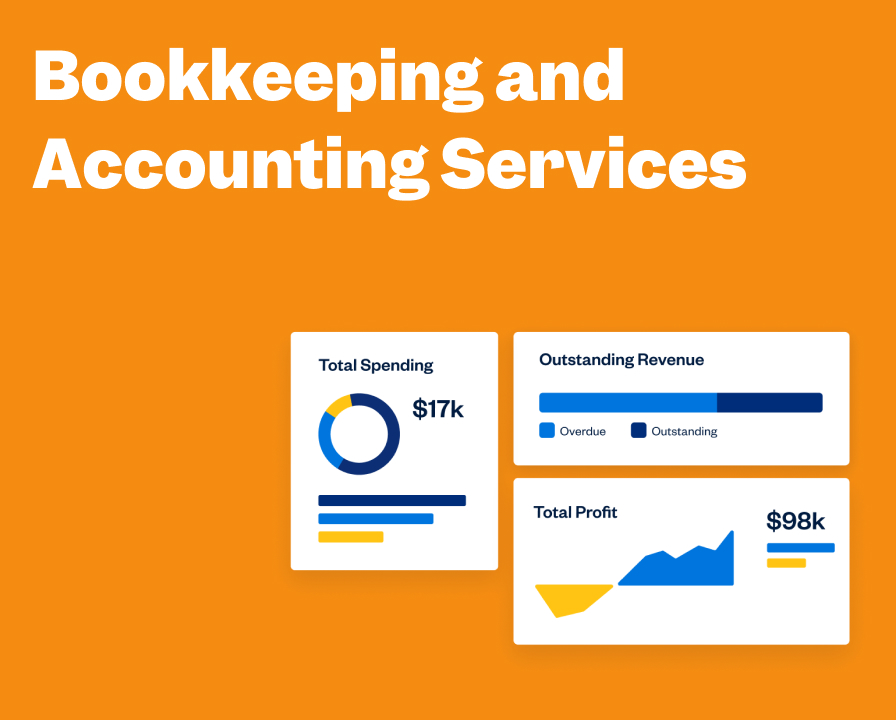After almost 4 years of the Pandemic, the debate regarding remote work is ongoing, with many companies contemplating the pros and cons of letting their employees work remotely and achieving their goals without physical presence within the office. However, many businesses and companies need more time to lean into remote work as a permanent setup, citing their anxieties about it destabilizing the workflow and creating lags that can hinder productivity. However, our research has shown significant advantages to letting employees work on their schedules and improving productivity without the punch-in, punch-out routine governing their every move. Over one-third of the workers in the U.S. who can work remotely do so all the time, while 41% are at least part-time remote on a hybrid setup. You need to know how to train remote employees effectively to get the best out of your workforce without having it physically present its workflow in an office setting. It’s all about shifting your lens a bit and understanding how remote work can be optimized to maintain productivity, and for that, there are a few practices to adopt that can help manage remote teams in 2024.

Image courtesy: FreePik
Working Remotely to Generate Success
Companies must ensure their workforce has the resources to be productive when wasting time. But merely sitting and filling a seat is not the goal. The real fear businesses need to mitigate is that their remote employees must follow the same protocols at home as they would within their office cubicles. However, research has shown that most employees manage work better when their schedules are built around their work hours, and productivity is higher when employees choose their peak creativity and productivity hours during the day rather than a regimented schedule.
Working from home doesn’t mean a disconnect from company goals but rather a more flexible work environment where input is measured by the actual work rather than the hours put In. Most employees know their ability to work from home gives them more freedom to concentrate on their primary work goals and churn out work that is a top priority. Rather than obsessing over work-from-home situations, most companies have approved hybrid work to allow employees to work at least once a week or more from home. This idea gained traction after most employees desired a hybrid work model, with over 41% currently in a hybrid work setup.
So, what is the natural anxiety around remote work? For most managers and company leaders, the issue lies in creating a workable hybrid or work-from-home model that doesn’t compromise company goals and communication, which can hinder workflow. That is where it becomes essential for companies to invest in proper professional development and training for hybrid workers and remote employees to manage their KPIs without interruptions, lags, or downgrading in their work. To ensure that every remote and offshore worker has a framework for working remotely, you need to provide them with some resources that they can use to manage remote work without any delays or discrepancies properly.
5 Tips to Training Remote Employees
Various procedures go into creating a more conducive environment for remote work. Companies insist on following protocols to allow and regulate remote workplaces and workflows and following them can help gain some control over hybrid and work-from-home work models.
Cyber Security Training
With so much of the hybrid work or work-from-home module being dependent on online connectivity, cybersecurity is a genuine concern for employers who want to ensure that their company information will remain confidential and that there will be robust protocols to manage the work with proper security protocols intact. Here are a few ways employers can train their remote workers when they are shifted to the remote model.
Interactive Online Modules
Extensive online modules should be created that cover various aspects of cybersecurity, such as identifying phishing emails, creating strong passwords, recognizing malware, and understanding data protection policies.
Mobile-friendly material
All the material provided to the remote employees for training should be accessible through mobile phones as most employees will be accessing the information on their phones or may only be able to access it through their phones. All the educational material needed for training must be accessible to all remote workers.
Live Webinars and Workshops
It would help if you also considered conducting workshops and webinars led by cybersecurity experts to provide in-depth training on critical cybersecurity topics. These sessions can target basic questions, feature demonstrations, and discuss real-life scenarios to enhance understanding and engagement.
Role-based Training
As remote employees work in different designations and positions, consider adjusting your training modules to be tailored to remote employees’ various roles and responsibilities. For example, the IT staff may require more advanced training on network security and incident response. In that case, non-technical employees may need basic awareness training on phishing and data protection.
Remote Access Security
You should guide secure remote access practices, enabling your remote employees to ensure they log in correctly and follow protocol. Guide virtual private networks (VPNs), multi-factor authentication (MFA), and secure Wi-Fi connections. Emphasize the importance of obtaining home Wi-Fi networks and avoiding public Wi-Fi hotspots for sensitive work activities.
Compliance Training
Ensure your remote employees understand the cybersecurity regulations and compliance requirements applicable to their roles and industries. Provide training on data protection laws, industry standards, and internal policies to mitigate compliance risks.
New Hires Onboard Training

Image courtesy: Freepik
It requires proper training to onboard new employees as they may not be familiar with the company procedures and processes, especially if they joined as remote employees and have not spent time in the office or didn’t receive official orientation and onboarding training. Training new hires remotely requires careful implementation and planning to ensure a smooth onboarding experience.
Virtual Orientation Sessions
Conduct online, virtual orientation sessions to welcome new hires and provide an overview of the organization’s culture, values, and goals. Use video conferencing tools to facilitate interactive sessions and allow new employees to ask as many questions as they want and connect with their colleagues.
Online Training Modules
Develop online training modules covering essential topics such as company policies, procedures, and job responsibilities. These modules can be accessed remotely and completed at the new hire’s pace. If you are conducting live sessions, ensure you have downloadable links for the orientation and the modules to be accessible to remote employees on their own time.
Virtual Mentorship Programs
Pair new hires with experienced employees to upskill their abilities. Skilled employees can act as mentors and provide guidance and support throughout onboarding. Encourage regular check-ins and virtual meetings to facilitate knowledge sharing and foster a sense of belonging. This is particularly important because most employees working in a remote setting have confessed to feeling lonely working alone and not being able to experience the company culture.
Remote Access to Resources
Ensure all new hires have remote access to all necessary resources, including documents, training materials, and collaboration tools. This becomes more important when handling offshore teams because all the information they receive will be relayed through collaborative communication tools. They need as much guidance as possible to work productively in different time zones, where they may have to communicate with their teams at odd hours to get the work done.
Remote Team Building Activities
New employees who join your company must feel alienated and comfortable and should feel a sense of belonging to their workplace, even if it is remote. Organize virtual team-building activities and social events to help new hires build relationships with their colleagues and feel connected to the company culture.
Encourage Self-directed Learning
It would help if you encouraged new hires to take ownership of their learning and development by providing access to online learning platforms, webinars, resources, and professional development courses. Please enable them to set goals and create a personalized learning plan to support their growth within the organization. Allowing your remote hires to self-learn also enhances the quality of your team. It will enable them to work well within themselves despite the distance, creating a more robust, insourced resource for your company.
Company Culture Training
When it comes to encouraging new hires to be more involved with the company, there needs to be a proper introduction to how the company operates and carries its processes forward with company culture training programs. New hires must be part of the company culture and how things work.
Culture Handbook or Guide
Create a culture handbook that outlines the company’s core values, expectations, and norms. Make this document accessible online so remote employees can reference it when needed. Include examples of how these values are demonstrated in day-to-day work and interactions.
Understanding the Chain of Command
Remote workers and remote hires need to know who controls what aspect of the company. Various chains of command, from the president to the chief of staff and managers, are responsible for different aspects of the company. New hires need to know who they report to for their KPIs and who is responsible for keeping the team together. Introduce them to the RACI matrix, which outlines who is responsible, who is accountable, and who needs to be consulted and kept informed about the projects that they commit to. Understanding the chain of command familiarizes the new remote workers to the company’s leadership and helps them navigate those relationships better.
Storytelling Sessions
Host virtual storytelling sessions where employees can share anecdotes and examples illustrating the company’s culture. Encourage remote employees to participate by sharing their own stories and experiences, fostering a sense of connection and community.
Employee Recognition Programs
It is often problematic for remote employees to feel part of an organization when working from a remote location. Employee recognition programs foster a sense of togetherness by celebrating behaviors and achievements that reflect the company’s values. Employee recognition programs are a vital part of the training on company culture to allow remote employees to appreciate their work environment, primarily if the people within that organization can provide them with the support they need.
Gamification Apps and Platforms
Remote employees may be unable to participate in team building exercises other than the virtual ones and may feel left out of the company culture in some ways. To enhance active participation, gamification apps should be introduced to encourage remote employees to reach their goals in exchange for rewards, points, and badges that reflect their growth within the organization. Especially for remote employees and hires in sales and client-facing roles, it is essential to give them a sense of accomplishment for their daily goals and targets in marketing and sales development.
Hard Skills Training
You need a tailored approach to training remote employees on hard skills to ensure effective learning and skill development. There are various ways that companies can also prioritize this for their remote employees.
Virtual Instructor-led Training (VILT)
You can offer virtual instructor-led tutorial sessions where remote employees can participate in real-time instruction and demonstrations. Use video conferencing tools to facilitate interactive sessions, Q&A sessions, and firsthand exercises to reinforce learning.
Self-paced Learning Modules
Develop self-paced learning modules that remote employees can access at their convenience. These modules can include instructional videos, tutorials, interactive quizzes, and assessments to help employees master hard skills independently. At any given time, companies should invest in an employee’s growth, and with remote employees, the growth opportunities can be even more when they are learning at their own pace within their set schedules. Encourage remote employees to continue their research and broaden their horizons.
Virtual Labs and Simulations
You can also provide virtual labs where remote employees can practice their hard skills in a simulated environment. This hands-on approach enables remote employees to gain practical experience and confidence in their abilities despite being in a remote location and working from home. This is an especially fruitful exercise for employees on a hybrid work model who would need to come into the office occasionally. It enables them to nurture their complex skills to keep pace and grow as professionals.
Real-world Application Projects
Assign real-world application projects to remote employees that require them to apply their newly acquired hard skills to solve practical problems or complete tasks relevant to their roles. Provide guidance and support throughout the project to ensure successful outcomes. Remote employees can benefit from opportunities to polish their skills constantly.
Certification Programs
Invest in various certification programs for remote employees that can help them hone their craft and gain expertise in particular skills to help them improve. Please encourage them to partake in professional development courses relevant to their field and career aspirations.
Soft Skills Training

Image courtesy: Freepik
Other than harnessing their hard skills and improving their specialties, all employees require proper training in soft skills as well; remote employees get fewer opportunities to interact with their peers and colleagues in the office, and most of the communication is done via virtual tools, so encouraging them to hone their communication through soft skills training for remote employees can also help them maintain their confidence.
Speaking and conversing training
mong the many examples of soft skills training that can be provided to remote employees, perhaps the most important ones are speaking and communication training. Facilitate remote employees with courses, seminars, and workshops on conversation and public speaking that can enhance their confidence levels and prepare them to take on the social aspect of their job despite being in a work-from-home situation. Often, employees can feel alienated from their peers if they work remotely, and giving them the boost to enhance their communication can enable them to communicate better and share new ideas.
Virtual Coaching and Mentoring
Offer remote employees virtual coaching and mentoring programs to enhance their communication skills. Also, they will be provided with reading modules and develop their listening skills so they can contribute meaningfully to their projects and gain knowledge from their peers. Facilitate sessions with internal mentors who can provide personalized guidance and support on developing soft skills. These sessions can include feedback, goal setting, and action planning to help employees achieve their development objectives.
Case Studies and Discussions
Present case studies and real-life scenarios that illustrate the importance of soft skills in various workplace situations. Engage remote employees in discussions and group activities that can bolster their confidence, identify effective strategies, and brainstorm solutions to challenges at work.
Emotional Intelligence Training
Offer training on emotional intelligence, including self-awareness, self-regulation, empathy, and social skills. All employees, but especially remote employees, need to have a connection to their workplace, and enhancing these skills can provide them with more insights into how to conduct themselves at work and perform better when challenges arise. Provide tools and techniques for remote employees to enhance their emotional intelligence and effectively navigate interpersonal interactions.
Cultural Sensitivity and Diversity Training
Provide training on cultural sensitivity to remote employees to help them understand and appreciate different perspectives, backgrounds, and communication styles. Remote employees need sensitivity and diversity training as much as in-house employees, as it contributes to a positive work culture where there is space for all kinds of people to share their ideas and learn from each other.
Why Invest in Remote Employee Training?
Migrating from an in-house situation to a work-from-home model is a transition that requires a settling and learning period. Remote employees are an asset to the company just as much as any other employee, and their continuous growth favors the company and the development of the business. If provided with the right kind of guidance, remote employees can outperform in-house employees because of the added agency to curate their schedules and work without the added stress of commuting. It has been proven that with proper training, remote employees can perform 79% better from online training than from in-person sessions, and that can be due to the one-on-one concentration within online training and the lack of social pressure to perform a certain way that enables remote employees to develop their skills and perform better. Out of the many advantages of training remote employees, some make these efforts worthwhile.
Increased Employee Retention
Remote employees want to maintain relationships with their workplace despite working on their own time and within their place. However, if proper outreach is performed with them, they feel more comfortable in their workplace and can experience loneliness and discouragement. Providing training sessions and check-ins increases employee engagement and retention by enabling remote employees to feel like part of the organization and providing them enough opportunities to prove themselves and challenge themselves so they contribute more meaningfully to the organization. Remote employees feel more encouraged to work when their organization invests in them and makes them feel valued by providing them with training and opportunities to gain experience through certifications and professional development programs.
Clarity of Processes Ensured
When working in an organization, some processes always adhere to the company culture and must be upheld to ensure that proper rules and regulations are followed. Remote employees can be removed from these processes, working in isolation, so additional training and programs can help mitigate that issue and familiarize them with the company’s rules, which can help them assimilate into the company and create value. To ensure that all the workflows are correctly managed and remote employees are up to speed with all the processes that are present in the company workflows, training is an excellent way to communicate with them. These training courses provide remote employees with clarity of vision and flexibility to process everything properly without any delays or confusion, streamlining workflows and making decisions based on informed processes.
Refreshed Existing Skills
Remote employees work within their environment and are often cut off from their professional setting, making their skills rusty. Without the pressure of managing challenges as they come in the workplace, they can fall short of polishing their skills without any opportunity to exercise their expertise. However, regular training on their hard skills can give them the confidence to manage their workload and use their abilities and continuously refresh them to gain more knowledge and experience to enhance the quality of their work and add value to their workplace. Training remote employees ensures that their existing skills keep growing and their expertise becomes more enhanced with time, especially for organizations that need specialized skillsets like IT accounting and bookkeeping. Training for remote employees allows them to hone their skills so they know how to approach challenges when they appear in the workplace. It helps grow their competencies and makes their contributions more valuable as well.
Enabling remote employees to learn from training and gain professional development experience empowers them to become valuable assets to the company. They can grow as individuals within the company and enhance their skills to leverage flexibility for better work experience. Their insights into their projects at work grow and make them more focused. Providing training to remote employees is an excellent way to ensure that they continue to value the time and energy they put into their work and provide improved quality deliverables.
How to Find Ideal Remote Employees?

Image courtesy: Freepik
When looking for the perfect employee for your company, you can find many skilled people, but with the proper training, they can become ideal employees. Remote Scouts is one such organization that takes remote staffing to the next level, streamlining all the processes associated with recruiting, training, and integrating diverse remote employees into your workforce. If your employees need to work a hybrid model or from home, they should be equipped with the right tools and guidance to excel in their roles regardless of their work situation. Companies are now realizing the importance of letting employees work from home, as most have seen increased productivity by allowing employees to work remotely.
This opens an exciting opportunity for organizations to consider letting their employees work from home and remote employees with the necessary skills to improve their company’s processes without bearing the cost of onboarding. Remote Scouts handles the strenuous process of recruiting and staffing the perfect person for your team by streamlining the onboarding process, conducting behavior interviews and skills tests, and providing necessary training to specialists like IT people and debt collection specialists. Hence, they are ready to work for you when onboard, eliminating the need for you to go through the hassle of preparing an employee to join your organization. Suppose this appeals to you as an opportunity to scale your business and acquire a dream team that can adapt to various workflows, develop value, and maintain their deliverables for your team. In that case, Remote Scouts is your answer to scouting the best remote employees for your business.














